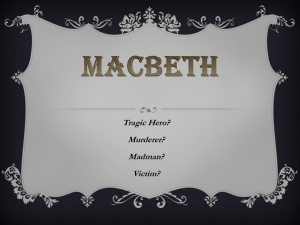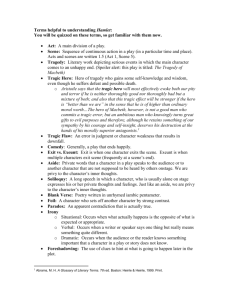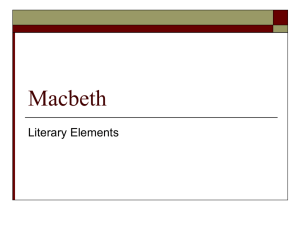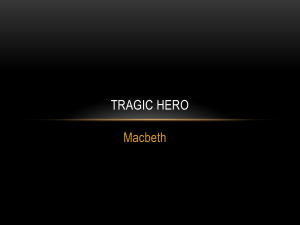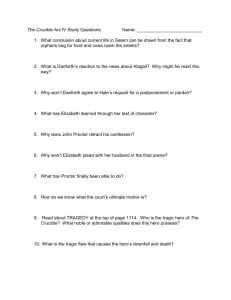Macbeth Tragic Hero Notes
advertisement
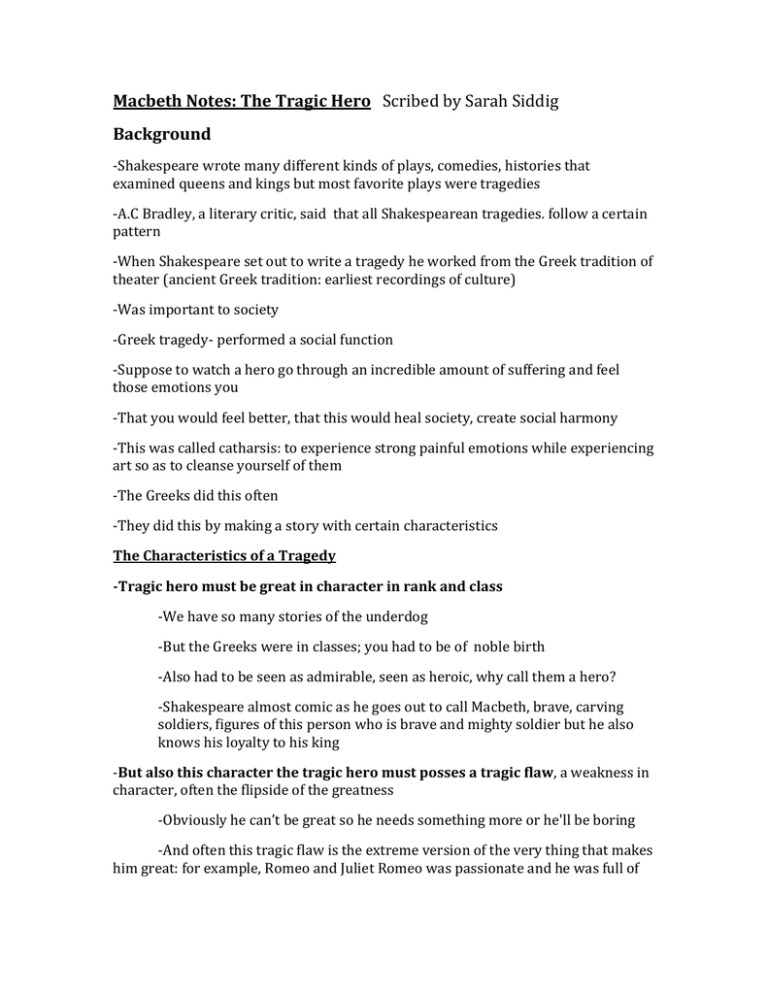
Macbeth Notes: The Tragic Hero Scribed by Sarah Siddig Background -Shakespeare wrote many different kinds of plays, comedies, histories that examined queens and kings but most favorite plays were tragedies -A.C Bradley, a literary critic, said that all Shakespearean tragedies. follow a certain pattern -When Shakespeare set out to write a tragedy he worked from the Greek tradition of theater (ancient Greek tradition: earliest recordings of culture) -Was important to society -Greek tragedy- performed a social function -Suppose to watch a hero go through an incredible amount of suffering and feel those emotions you -That you would feel better, that this would heal society, create social harmony -This was called catharsis: to experience strong painful emotions while experiencing art so as to cleanse yourself of them -The Greeks did this often -They did this by making a story with certain characteristics The Characteristics of a Tragedy -Tragic hero must be great in character in rank and class -We have so many stories of the underdog -But the Greeks were in classes; you had to be of noble birth -Also had to be seen as admirable, seen as heroic, why call them a hero? -Shakespeare almost comic as he goes out to call Macbeth, brave, carving soldiers, figures of this person who is brave and mighty soldier but he also knows his loyalty to his king -But also this character the tragic hero must posses a tragic flaw, a weakness in character, often the flipside of the greatness -Obviously he can’t be great so he needs something more or he'll be boring -And often this tragic flaw is the extreme version of the very thing that makes him great: for example, Romeo and Juliet Romeo was passionate and he was full of passion and would do anything for love but that same passion is what made him kill Tybil -The same passion that leads to him being loved was the same thing that made him bad. -The tragic flaw will lead the tragic hero to commit the "act that damns!" -This flaw in character must be something that commits this act of damns because the tragic hero has so be seen as responsible for the act that damns -Who is ultimately responsible for the acts in this play? -Horror story, gothic tales, the power of the supernatural since the witches have influenced him -The tragic hero becomes increasingly isolated -Because once you commit an evil deed you start to take on evil and that screws up relationships -Just seeing the asides Macbeth is his isolation, before becoming thane Macbeth and Banquet were best buds now Macbeth is becoming more isolated -The tragic hero will eventually encounter nemesis (arch enemy) and die -NEMESIS DOES NOT MEAN KARMA <---- emphasized -Nemesis can be a form of a person "my arch enemy" -At the end of a tragedy you should feel a sense of wasted potential and grief "if only" -Believe that this person could have been great; this comes from the Greeks because they believed they weren't in control of their lives -That their lives belonged to the fates -If you know that the play is called tragedy then a lot of people are going to die
